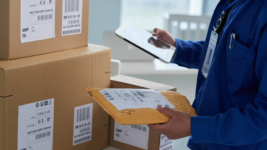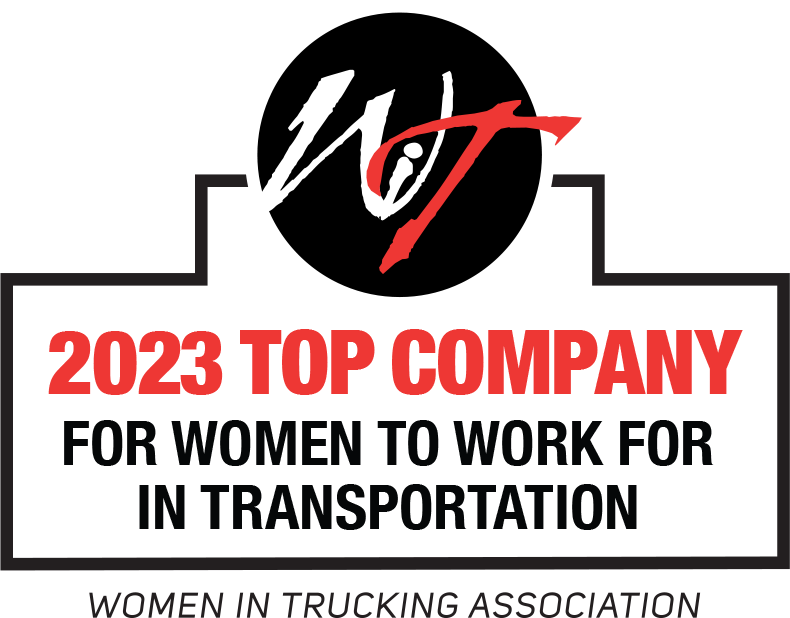As we write this, the NCAA basketball tournament–also known as March Madness–is about to begin. So is the country’s annual obsession with building brackets.
We can’t tell you how to fill out a perfect bracket, although we do have a few solid theories about who’s going to be in this year’s Final Four. But we can give you a surefire recipe for creating a losing one: Just base your picks on outdated information like previous seasons’ teams, players, and coaches.
Hold that thought as we pivot to another important subject: Building your parcel carrier bracket.
Unlike “the big dance,” that appears to be a much easier proposition. After all, delivery has essentially been a two-player market for years, so it’s really just a matter of deciding whether UPS or FedEx will get the largest portion of your business.
But is that really still true? Or are you perhaps working with an antiquated and inaccurate perception of the many other players–namely regional carriers–who’d like to challenge the big two for a larger market share?
What delivery advantages could your company be missing out on by NOT updating your opinion about these alternative parcel delivery options?
To help you answer those questions, here are nine things you should periodically be asking about regional carriers, along with some of the latest, sometimes eye-opening answers.
- Are regional carriers “just” regional?
Yes and no. While many regional carriers (like LSO in the Southwest or Spee-Dee in the Midwest) only operate in a single region, there are some (like the newly merged OnTrac and LaserShip ) that can help you deliver to multiple regions–and up to 74% of the country’s population. - Is the term “regional carrier” synonymous with mom-and-pop business?
Not always and certainly not anymore. Today, the industry’s largest regional carriers employ thousands of people and deliver to tens of millions of consumers. They also have substantial networks with dozens of locations and state-of-the-art systems. In fact, the industry’s largest regional delivery carrier has 5,000 employees, 7,000 independent contractors and the ability to deliver to 150+ million U.S. consumers across 30 states. - So, what actually makes a regional carrier different from a national or international carrier?
They typically make pick-ups and deliveries within a 5000-mile radius in zones 2, 3 and 4.Some carriers, like Courier Express, also focus on handling certain kinds of products like pharmaceuticals, office products and medical specimens.
That said, some carriers handle the same range of parcels that UPS and Fed Ex do–and offer a similar selection of ground pick-up and delivery services.
Do regional carriers offer delivery service guarantees?
Absolutely. In fact, because their delivery radius is smaller, most regional carriers feature ground transit times that are superior to UPS’s and FedEx’s which means they have an easier time keeping those delivery promises.
- Do regional carriers offer tracking?
The large-to-medium-sized ones definitely do. But some smaller ones may not. It really depends on the carrier. - Can a company deliver to every U.S. address solely by working with regional carriers?
Not yet. Even if you were to combine all of the addresses they deliver to, regional carriers would only collectively serve about 85% of the country.However, many of them could be viable alternatives for a portion of your parcel business–and perhaps offer you some cost savings and service improvements in the process.
- What are the potential advantages of using regional carriers?
We’ve already touched on one–faster ground delivery times.Regional carriers usually also offer fewer surcharges, better pricing, higher on-time delivery rates, and later pick-up times.
And on average, they can offer cost savings of anywhere from 10 to 40%.
- What are the potential disadvantages of using regional carriers?
For one thing, they can’t provide you with full national coverage, although some are getting closer to being able to.For another, they usually don’t offer the full spectrum of services (like air express) that UPS and FedEx do.
Plus, many of their technologies are less advanced, and some of them may not be willing to pick up your shipments if you’re a smaller shipper.
If you funnel enough of your business to regional carriers, it could also affect the volume discount you currently enjoy with national carriers, so you’ll need to watch that tipping point closely.
- What else should I be considering?
Like which NCAA basketball teams are hot and which are not, the parcel delivery landscape can change dramatically from season to season. So, if you haven’t looked at regional delivery options for a while, maybe it’s time to take another look at them–and weigh the pros and cons of where they might be a good fit for you and your bracket. And if you conclude that they’re still not right for you, make sure you revisit the possibility soon. Anyway, when the ball bounces, you’ll be glad you did.
Want more advice about your strongest parcel delivery options? Drop AFS a line. We offer a myriad of parcel services and have helped our clients achieve over $60 million in parcel savings over the past five years alone. We’d love to discuss the possibilities with you.









